
Canaletto's biography (1771)
by Anton Maria Zanetti the younger
I have found in many books several Canaletto's historians and scholars who talk about him referring A.M. Zanetti the younger as "Canaletto's biographer", and using short quotations, chunks of what he wrote in his 1771 book: "Della pittura veneziana e delle opere pubbliche de' veneziani maestri" (About Venetian painting and public works of the Venetian Masters).
Anton Maria Zanetti the younger (Venice 1706-1778) was a Venetian art historian and custodian of the Marciana Library.
He is very often confused with his cousin Anton Maria Zanetti the elder (Venice 1680-1767) who was a draftsman and engraver as well as a learned connoisseur and writer of art.
To make things clearer I would like to propose in this page the "full biography of Antonio Canal by AM Zanetti" that is so many times referred to. Pages 462-463-464.
Italian:
ANTONIO CANAL
"Saranno forse inutili le scritte memorie di questo egregio Maestro, perciò che le molte opere sue sparse per le parti più colte dell' Europa nostra* faranno sempre onorevole testimonio del suo valore. Ma poichè più delle pitture sono per durare gli scritti; trasmettasi alla posterità più lontana le notizie ch'ei fu uno de' più valenti pittori de' giorni suoi nel rappresentare vedute e prospettive, tanto tratte dalla verità , quanto dalla immaginazione; e pochi o niuno facilmente ei ne vide che prima in quel genere a lui n'andasse avanti."
"Unì il Canal ne' suoi quadri alla natura le pittoresche licenze con tanta economia, che le opere sue vere compariscono a chi non ha che buon senso per giudicarne; e chi molto intende trova di più in esse grand’arte nella scelta de' siti, nella distribuzione delle figure, nei campi, nel maneggio delle ombre e dei lumi; oltre a una bella nitidezza e saporita facilità di tinta e di pennello, effetti di mente serena e di genio felice."
"Figliuolo egli fu di Bernardo, che traea origine dalla nobilissima famiglia da Canal, ed era pittore da teatro. Ne' primi anni seguitò col Padre quell'esercizio, utile per sciogliere la mano e svegliare la fantasia della gioventù, e per obbligarla a operar con prontezza; e fece bellissimi disegni per gli scenarii."
"Lasciato poi il teatro, annojato dalla indiscretezza de' Poeti drammatici**; passò giovinetto a Roma, e tutto si diede a dipingere vedute dal naturale. Bei soggetti ei trovò quivi nel genere spezialmente dall'antichità; e belli per i pittoreschi accidenti n'ebbe dopo nella patria sua, i siti della quale non possono essere più opportuni a quel fatto; cosicché chi veduti non gli ha, crede nel mirar le pitture, che siano piuttosto immaginarii pensamenti che semplici verità."
"Insegnò il Canal con l'esempio il vero uso della camera ottica; e a conoscere i difetti che recar suole a una pittura,
quando l'artefice interamente si fida della prospettiva che in essa camera vede, e delle tinte spezialmente delle arie e non sa levar destramente quanto può offendere il senso.
Il Professore m'intenderà."
"Finì di vivere nel passato anno 1768. il dì 20. Aprile, il 71. dell'età sua.
Nella Pubblica Accademia, nella stanza delle adunanze, lasciò un bel quadro con la veduta d'un delizioso cortile."
* Passò due volte in Londra dove dimorò e dipinse per molti anni; e acquistò gloria e danari.
** Ciò fu circa l'anno 1719. in cui scomunicò, così dicea egli, solennemente il teatro.
English:
ANTONIO CANAL
"Will perhaps be useless, the written memoirs of this eminent Master, such as the many works of his, scattered throughout the most cultivated parts of our Europe* will always bear honorable witness to his worth. But since more than the paintings are to endure the writings; let it be transmitted to more distant posterity the news that he was one of the most talented painters of his day in representing views and perspectives , as much drawn from truth, as from imagination; and few or none were easily seen before who in that genre went ahead of him."
"Joined Canal, in his paintings, the nature with artistic licenses with such care, that his works appears real to those who have only good sense to judge them; and those who much understand find in them greater art in the choice of sites, in the distribution of figures, in the framings, in the handling of shadows and lights; aside from a beautiful sharpness and pleasant easyness of hue and brush, effects of a serene mind and joyful genius."
"He was the son of Bernardo, who came from the very noble da Canal family, and was a theater painter. In his early years he followed with his Father that activity, which is useful for loosening the hand and awakening the imagination of the young, and for forcing it to work promptly; and he made beautiful designs for the sceneries."
"He left then the theater, bored by the inconsistency of the dramatic Poets**; as a young man he went to Rome, and he gave all himself to painting views from nature. Beautiful subjects he found there, specially in the genre from antiquity; and beautiful for the picturesque situations he had afterwards in his homeland, the sites of which cannot be more appropriate to that fact; so that those who have not seen them, believe in gazing at the paintings, which they are rather imaginary thoughts than simple truths."
"Taught Canaletto with his example the real use of the optical camera; and to understand the defects which it gives to a painting, when the artist trusts the perspective which he sees in the camera, and trusts the colors of special situations and is not able
to deftly take out what could be offensive to the senses.
The Professor will understand me."
"His life ended in the past year of 1768, the 20th day of April, on the 71st year of his age.
In the Pubblica Accademia, in the assembly room, he left a beautiful painting with a view of a delightful courtyard."
* He passed twice in London where he lived and painted for many years; and acquired glory and money.
** This was about the year 1719th in which he excommunicated, so he said, solemnly the theater.
![Antonio Visentini: [1735] - Portraits of Canaletto and Visentini - Etching - first state of three - Metropolitan Museum of Art, New York](../images_db/Antonio-Visentini-1735--x010-Portraits-of-Canaletto-and-Visentini-MET-DP885444.jpg)

Antonio Visentini: [1735] - Portraits of Canaletto and Visentini
Etching - first state of three - Metropolitan Museum of Art, New York - size (HxW): 27.2x42.9 cm
![Anton Maria Zanetti: [1771] - Della Pittura Veneziana e delle Opere Pubbliche de' Veneziani Maestri - Libri V.', pages: cover-462-463-464 - Canaletto so called 'biographer' in the two pages Zanetti dedicates to him and his oeuvre in the book](../images_db/Camera-Obscura--x003b-anton-maria-zanetti-pittura-veneziana-full_u.jpg)

Anton Maria Zanetti: [1771] - Della Pittura Veneziana e delle Opere Pubbliche de' Veneziani Maestri - Libri V.', pages: cover-462-463-464
Canaletto so called 'biographer' in the two pages Zanetti dedicates to him and his oeuvre in the book
![[1720] - Turno Aricino. Drama per musica di Silvio Stampiglia - Da rappresentarsi nella Sala dell'ill.mo Sign. Federico Capranica nel Carnevale dell'Anno 1720.](../images_db/Teatro-Capranica-1720--x007-Scarlatti--Libretto-Turno-Aricino-1720-gp1.jpg)

![attributed to Canaletto: [1746] - A Self-Portrait in London with St Pauls Cathedral in the background - Oil on canvas - Private Collection, Anglesey Abbey](../images_db/Canaletto-1746--x016-A-self-portait-with-Saint-Pauls-in-the-Background-271330.jpg)
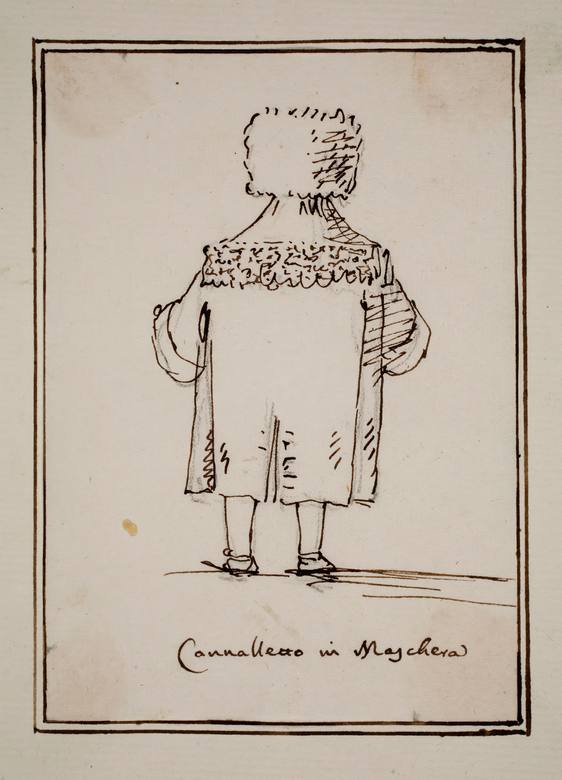
![Canaletto: [ca. 1727-35] - A View of Dolo on the Brenta Canal - Oil on canvas - Ashmoleam Museum, Oxford](../images_db/Canaletto_1727-35ca__p027_A_View_of_Dolo_on_the_Brenta_Canal_get-gp.jpg)
![Canaletto: [ca. 1725] - The Grand Canal from the Ponte di Rialto - Oil on canvas - Musée Cognacq-Jay, Paris](../images_db/Canaletto_1725ca__p148__CR_075b_il_canal_grande_visto_dal_ponte_di_rialto_524122ld.jpg)
![Canaletto: [1740s] - View of San Giuseppe di Castello - Oil on canvas - Private Collection](../images_db/Canaletto_1740s__p165_CR_131_View_of_San_Giuseppe_di_Castello_WGA03931.jpg)
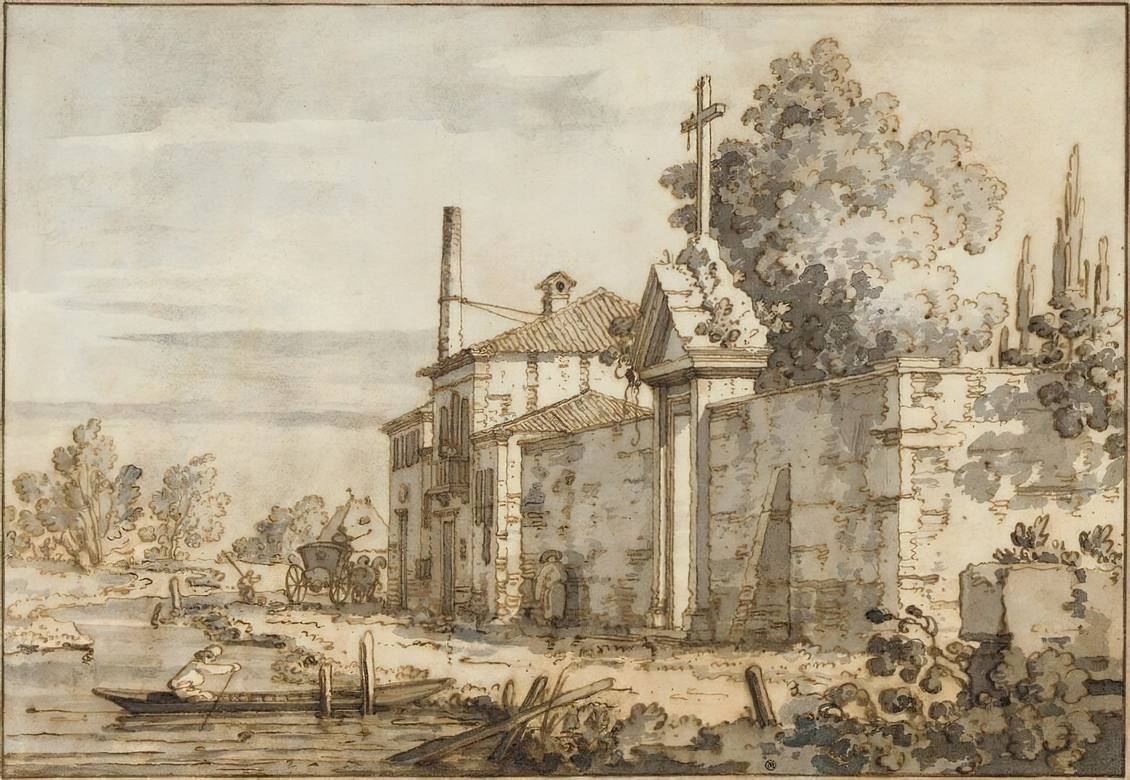
![Canaletto: [ca. 1738] - Il Ritorno del Bucintoro al molo nel giorno dell'Ascensione (The Bucintoro returning to the Molo on Ascension Day) - Oil on canvas - Holkham Hall & Estate, Norfolk](../images_db/Canaletto_1738ca__p078_Il_Ritorno_del_Bucintoro_al_molo_nel_giorno_dell'Ascensione_c.1738__Holkham_Estate.jpg)
![Canaletto: [1740s] - Capriccio con una cappella sulla riva di una collina con il mare - Gouache on paper](../images_db/Canaletto_1740s__p334_Capriccio-con-una-cappella-sulla-riva-di-una-collina-con-il-mare-gp1.jpg)
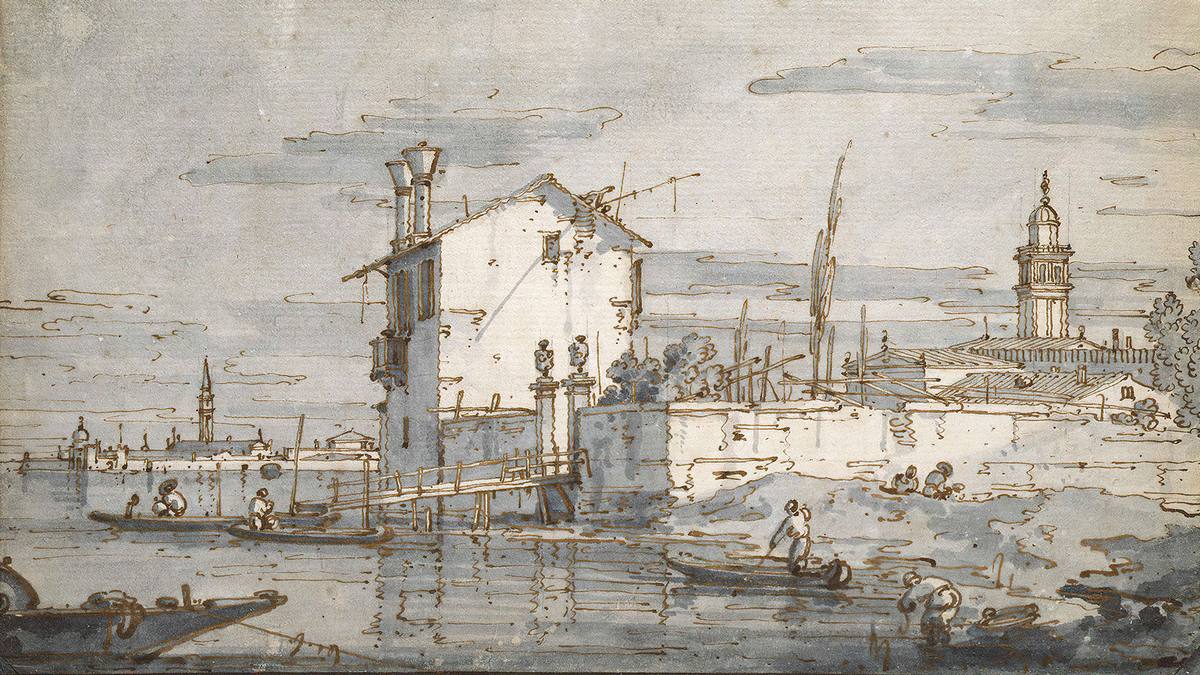
![Canaletto: [1742-46] - The Piazza San Marco, Venice - Oil on canvas - Art Gallery of New South Wales, Sidney](../images_db/Canaletto_1742-46__p201_The_Piazza_San_Marco_Venice__Google_Art_Project.jpg)
![Canaletto: [ca. 1750] - View of Mestre - Oil on canvas - National Trust, Dorneywood](../images_db/Canaletto__p293_View-of-Mestre-NTIV_DORN_1507741-001-gp1.jpg)
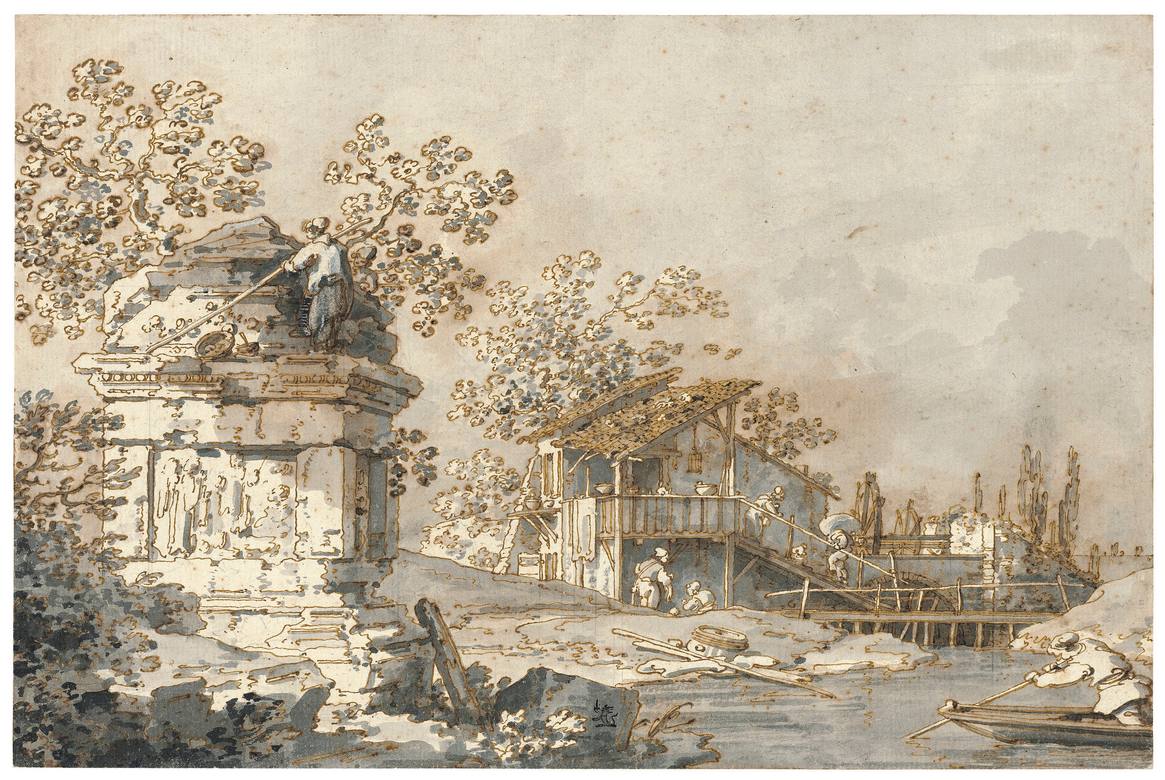
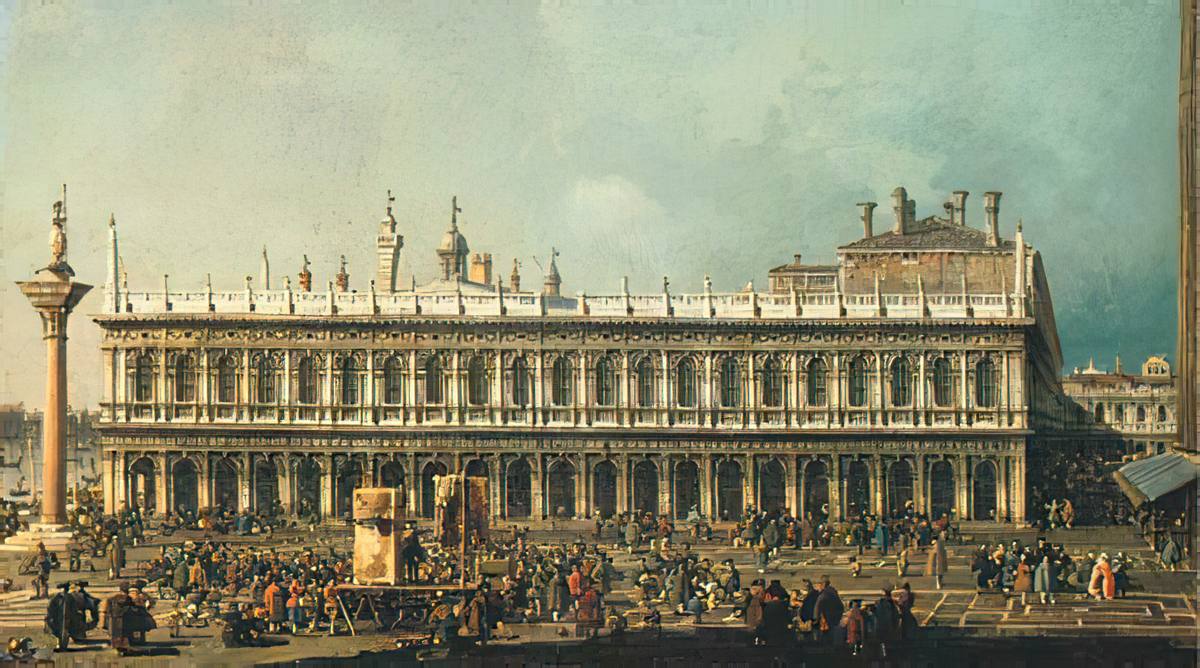
![Canaletto: [maybe 1734-42] - Venice - Entrance to the Cannaregio - Oil on canvas - The National Gallery](../images_db/Canaletto_1734-42maybe__p200_CR_176a_Venice-Entrance-to-the-Cannaregio-National-Gallery-gp.jpg)
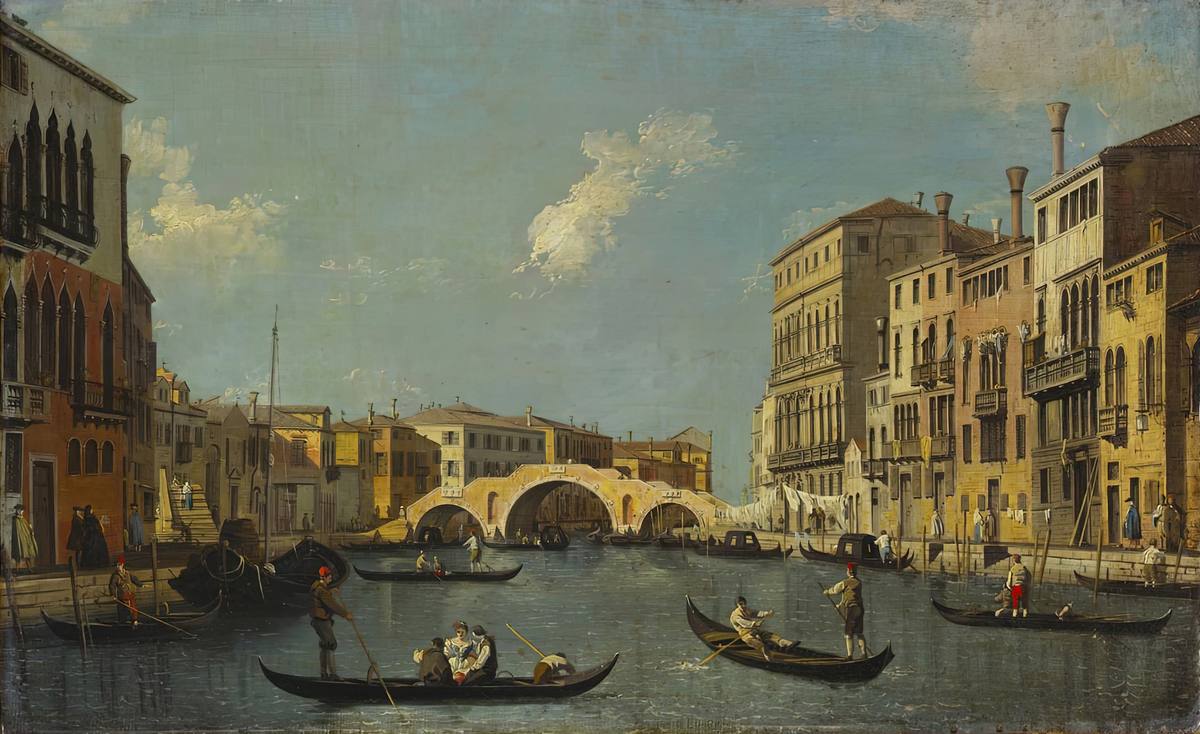
![Canaletto: [ca. 1740-60] - A capriccio with a Roman arch - Drawing - Pen and ink, with grey wash, over free and ruled pencil and pinpointing - Royal Collection Trust, RCIN 907523](../images_db/Canaletto_1740-60ca__d082_A-capriccio-with-a-Roman-arch--RCIN-907523.jpg)
![Canaletto: [1754] - London, Interior of the Rotunda at Ranelagh - Oil on canvas - The National Gallery, London](../images_db/Canaletto_1754__p123_London_Interior_of_the_Rotunda_at_Ranelagh__The_National_Gallery_London.jpg)
![Canaletto: [ca. 1740] - Veduta di Mestre, Le Riva delle Barche e l'Antica Posta (View of Mestre, alle Barche) - Oil on canvas - Fondation Bemberg, Toulouse](../images_db/Canaletto_1740ca__p082_Vue_de_Mestre_Canaletto_Bemberg_Fondation_Toulouse-Inv_1010.jpg)
![Canaletto: [ca. 1734] - Venice - The Libreria and Molo - Drawing - Pen and ink, over ruled and free pencil and pinpointing - Royal Collection Trust, RCIN 907439](../images_db/Canaletto_1734ca__d040_Venice-The-Libreria-and-Molo--RCIN-907439.jpg)
![Canaletto: [ca. 1735] - Piazza San Marco Looking toward San Geminiano - Oil on canvas - Galleria Nazionale d'Arte Antica di Palazzo Corsini, Roma](../images_db/Canaletto_1735ca__p189_Piazza_San_Marco_Looking_toward_San_Geminiano--bhim00037172-gp1u.jpg)
![Canaletto: [ca. 1746-56] - Westminster Bridge, London, the Lord Mayor's procession - Drawing - Pen and brown ink, with grey wash - British Museum, London](../images_db/Canaletto_1746-56ca__d160_Westminster-Bridge--London--the-Lord-Mayor's-procession--British-Museum-120944001.jpg)
![Canaletto: [ca. 1730] - Veduta del Canale di Santa Chiara a Venezia (View of the Canale di Santa Chiara, Venezia) - Oil on canvas - Musée Cognacq-Jay, Paris](../images_db/Canaletto_1730ca__p039_veduta_del_canale_di_santa_chiara_a_venezia_1a.jpg)
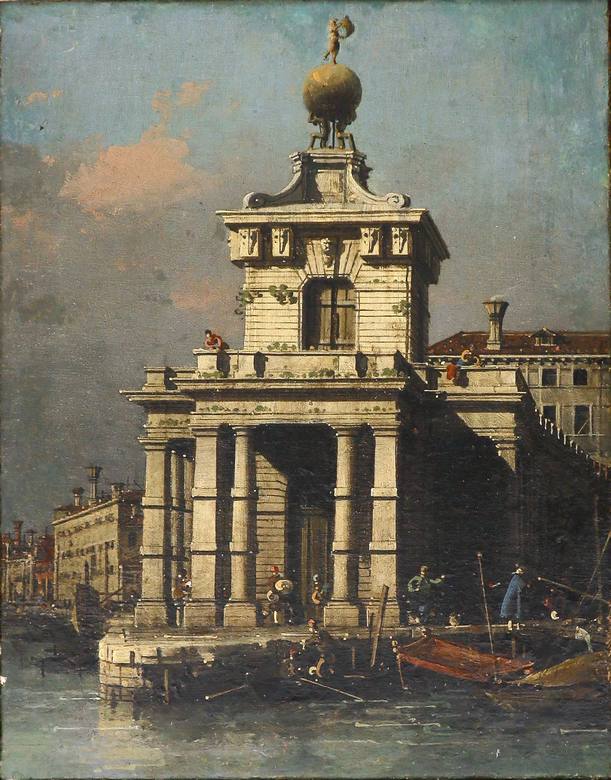
![Canaletto: [1730-50] - S. Francesco della Vigna - Church and Campo - Oil on canvas](../images_db/Canaletto__p298_S.Francesco-della-Vigna--Church-and-Campo-112501-gp1.jpg)
![Canaletto: [1712-68] - A capriccio of the Rialto Bridge with steps leading to the central arcade - Drawing - Pen and brown ink, ruled black chalk lines in some of the the architectural elements - British Museum, London](../images_db/Canaletto_1712-68__d195_A-capriccio-of-the-Rialto-Bridge-with-steps-leading-to-the-central-arcade--British-Museum-105313001.jpg)
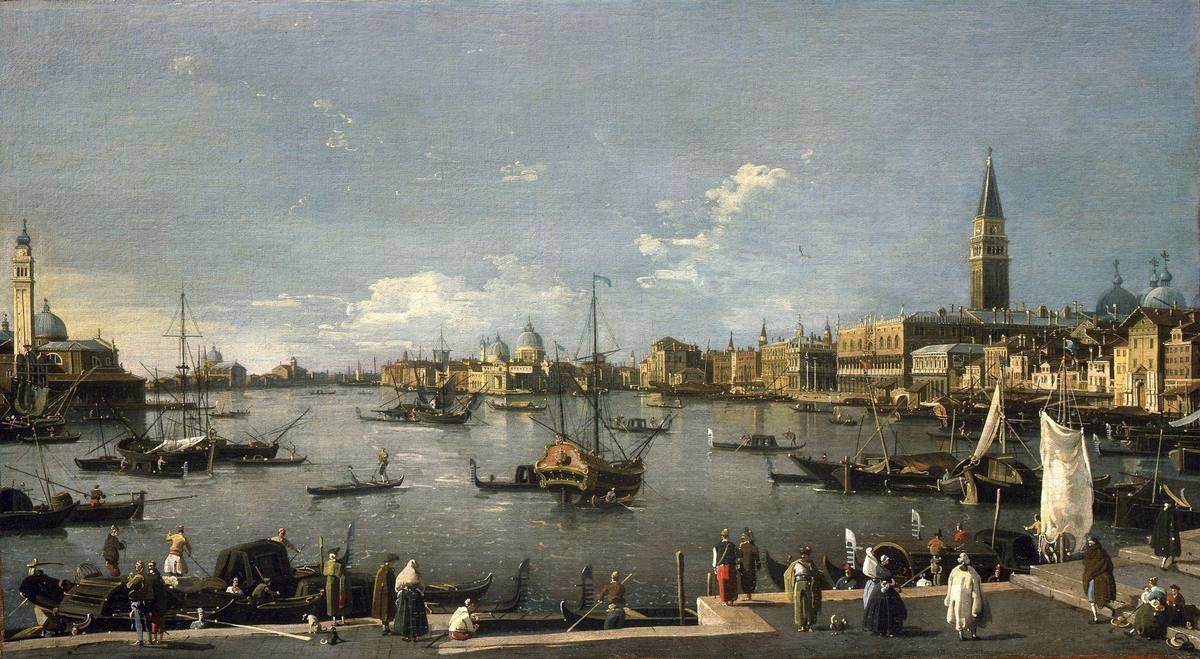
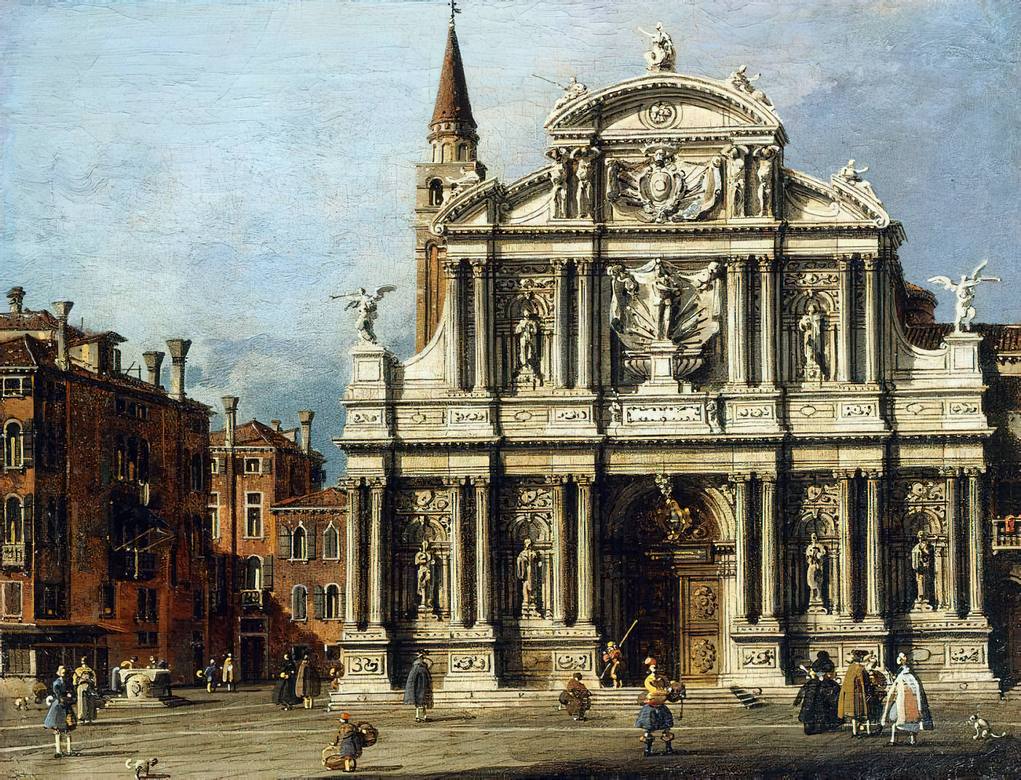
--Staatliche-Museen-zu-Berlin-bild_046-a-gp.jpg)
![Canaletto: [mid 1730s] - View of the Piazzetta with the Southwest corner of th Doge Palace - Oil on canvas - Private Collection](../images_db/Canaletto_1730smid__p089_View_of_the_Piazetta_with_the_Southwest_corner_of_the_Doge_Palace-gp.jpg)
![Canaletto: [1752] - Warwick Castle - the East Front - Oil on canvas - Birmingham Museum of Art](../images_db/Canaletto_1752__p263_CR_291a_Warwick-Castle-the-East-Front-WGA03951-271329-gp.jpg)
![Canaletto: [ca. 1744] - Venice - Caprice view of the Zecca and Granaries with the Ponte della Pescaria - Oil on canvas - Royal Collection Trust](../images_db/Canaletto_1744ca__p305_708417-1504195427-gp.jpg)
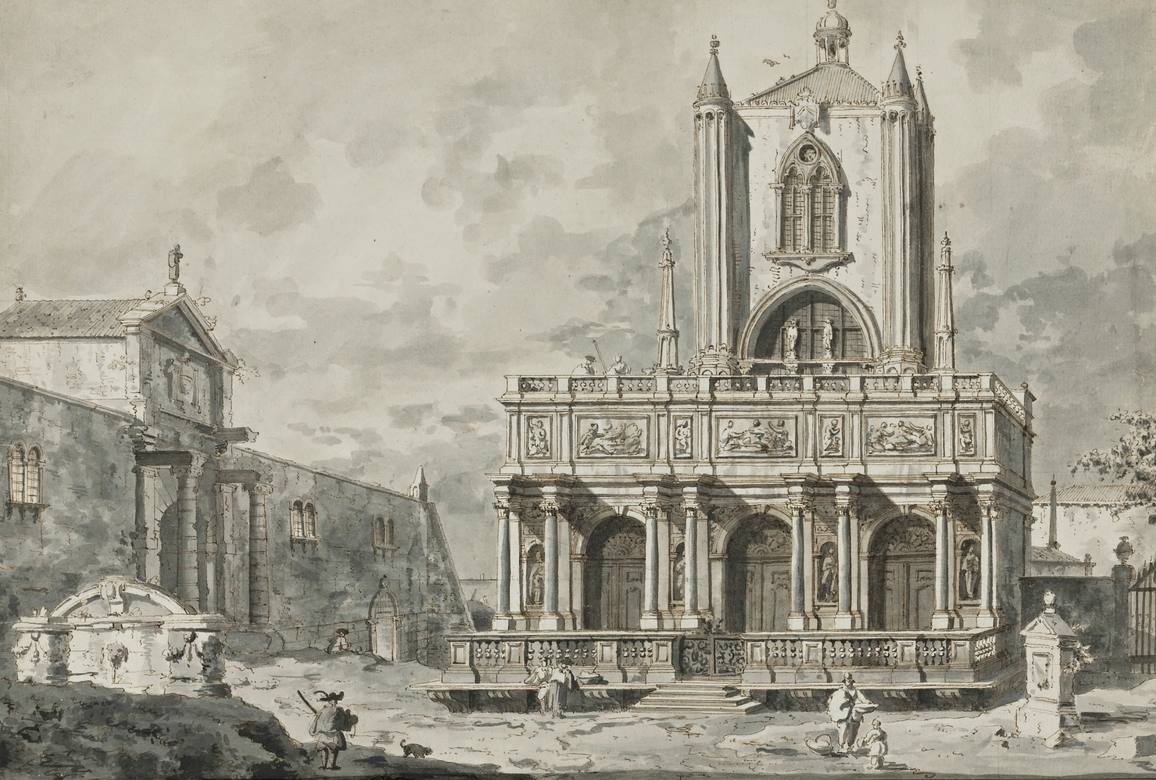
![Canaletto: [before 1768] - The Equestrian Statue of Bartolomeo Colleoni - Oil on canvas - Private Collection](../images_db/Canaletto_1768before__p073_the_Equestrian_Statue_of_Bartolomeo_Colleoni.jpg)
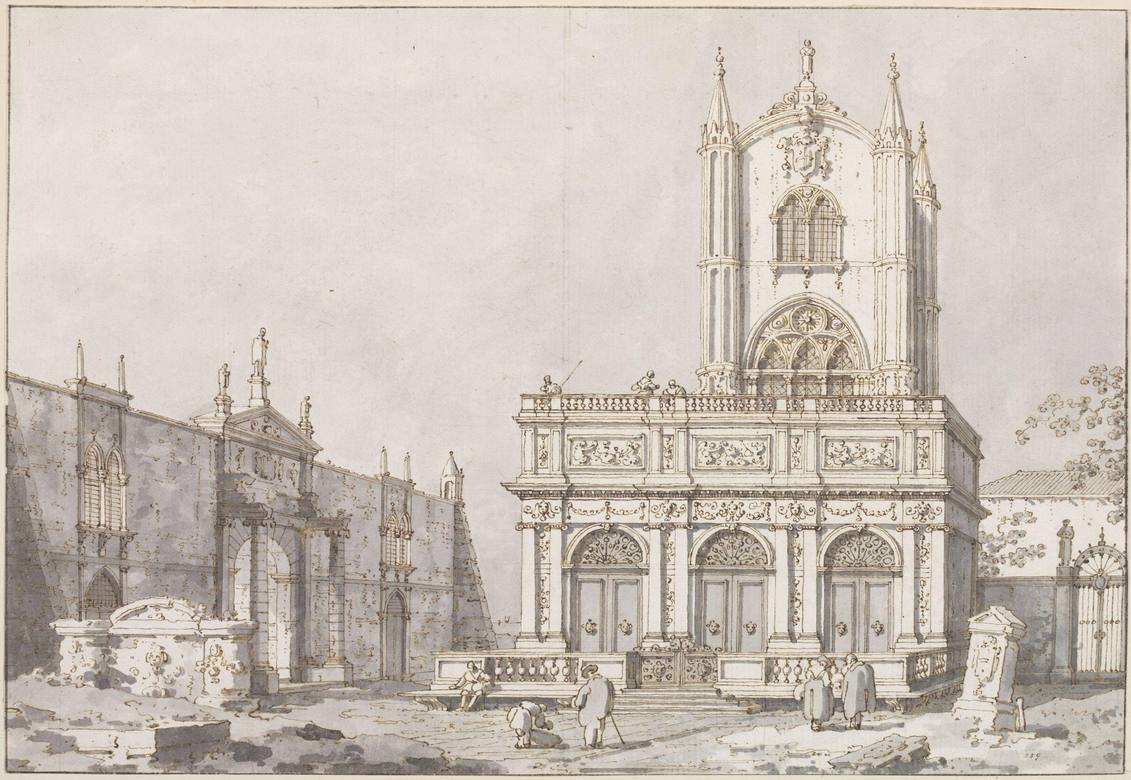
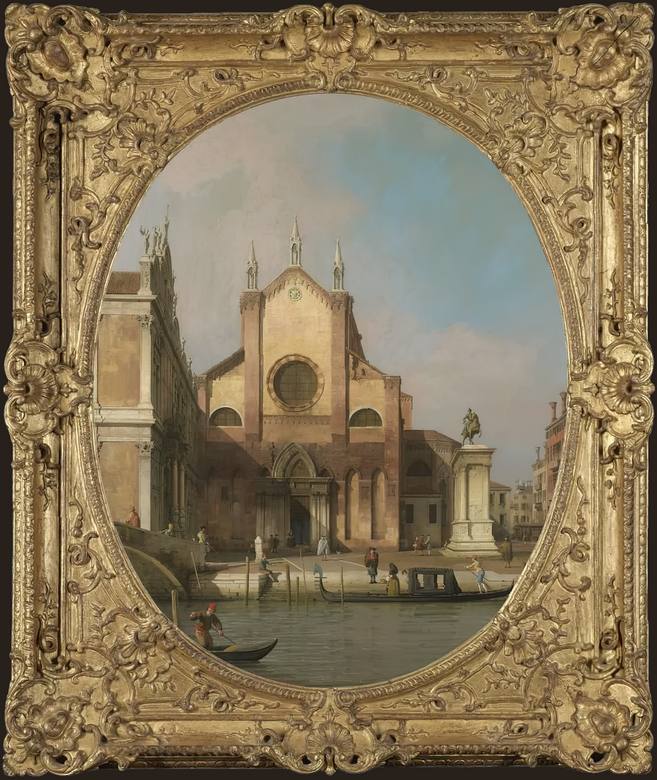
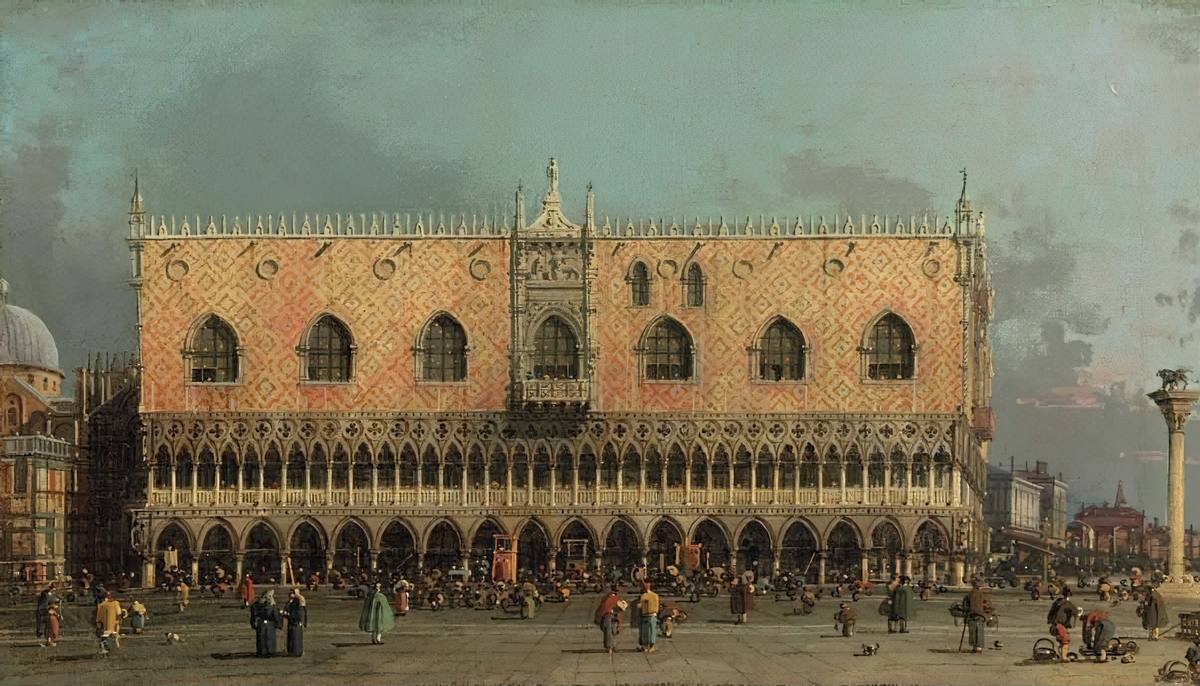
![Canaletto: [ca. 1740-60] - A capriccio with Santi Maria e Donato, Murano - Drawing - Pen and ink, with bluish-grey wash, over free and ruled pencil and pinpointing - Royal Collection Trust, RCIN 907493](../images_db/Canaletto_1740-60ca__d071_A-capriccio-with-Santi-Maria-e-Donato--Murano--RCIN-907493.jpg)
![Canaletto: [ca. 1730-34] - Piazza San Marco with the Basilica - Oil on canvas - Fogg Art Museum, Cambridge, MA](../images_db/Canaletto_1730-34ca__p040_Piazza_San_Marco_with_the_Basilica_1730_Fogg_Art_Museum,_Cambridge.jpg)
![Canaletto: [after 1755] - Veduta di Venezia con Ca' Pesaro - Oil on canvas - VMFA - Virginia Museum of Fine Arts](../images_db/Canaletto_1755after__p286_Veduta-di-Venezia-con-Ca-Pesaro__VMFA_Virginia_Museum_of_Fine_Arts__TF_202103_w-gp2.jpg)
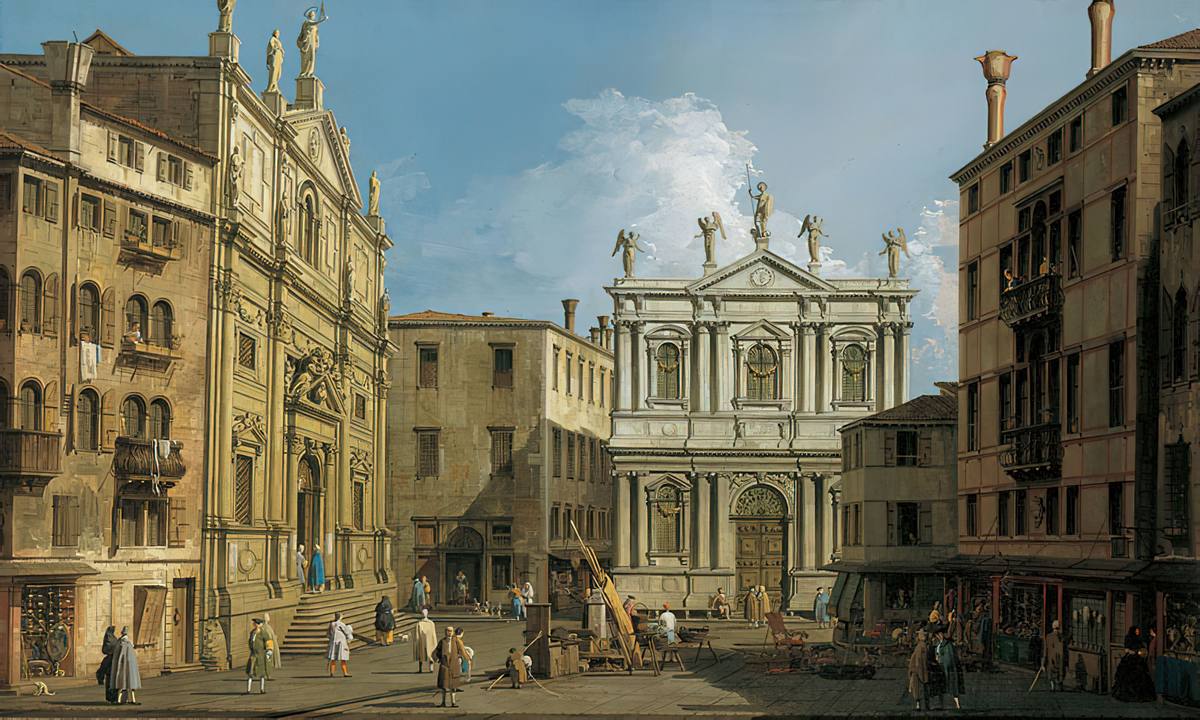
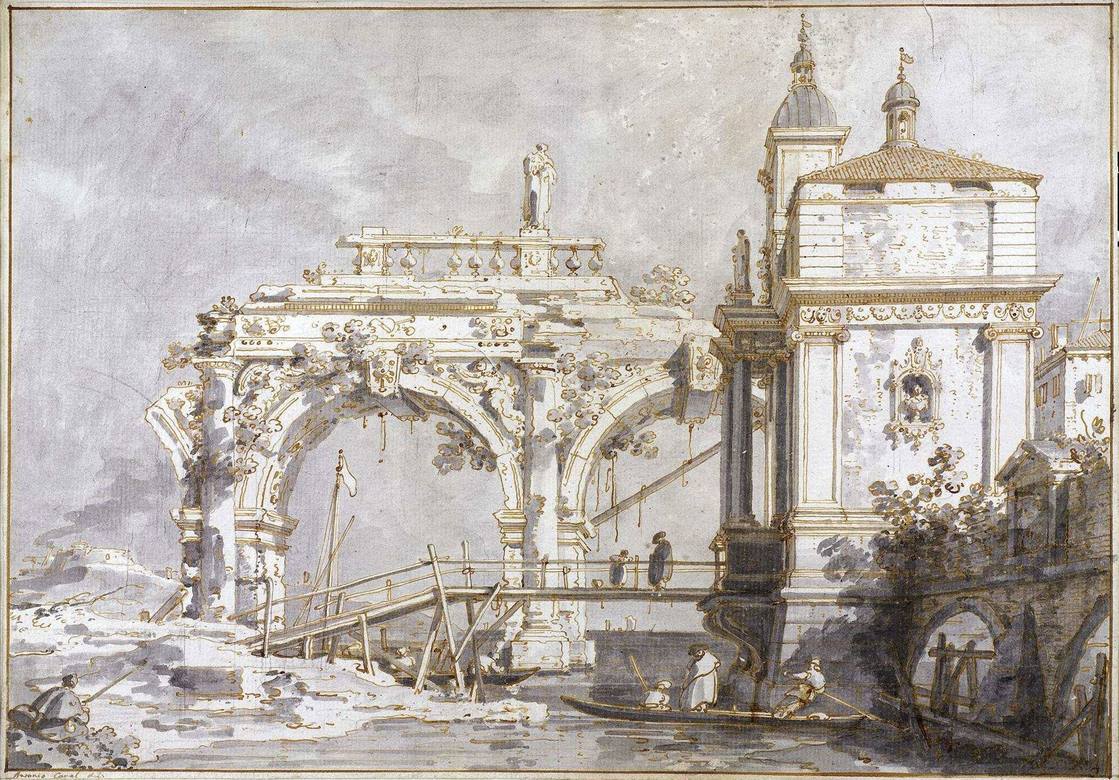
![Canaletto: [ca. 1730-45] - Capriccio con rovine classiche ed edifici di Padova - Oil on canvas - Kunsthalle, Hamburg](../images_db/Canaletto_1730-45ca__p350_CR_336a_Capriccio-com-rovine-classiche-ed-edifici-di-Padova_129648.jpg)
![Canaletto: [before 1747] - San Giacomo and the Campo di Rialto - Drawing - Pen and washes in brown and brush in gray, over traces of a preliminary drawing in gray pencil - Staatliche Museen zu Berlin](../images_db/Canaletto_1747before__d245_San-Giacomo-and-the-Campo-di-Rialto--Staatliche-Museen-zu-Berlin__947364_4946669.jpg)
![Canaletto: [1744] - Entrance to the Grand Canal Looking East - Oil on canvas - Windsor Castle](../images_db/Canaletto_1744__p101_Entrance_to_the_Grand_Canal_Looking_East_1744_1.jpg)